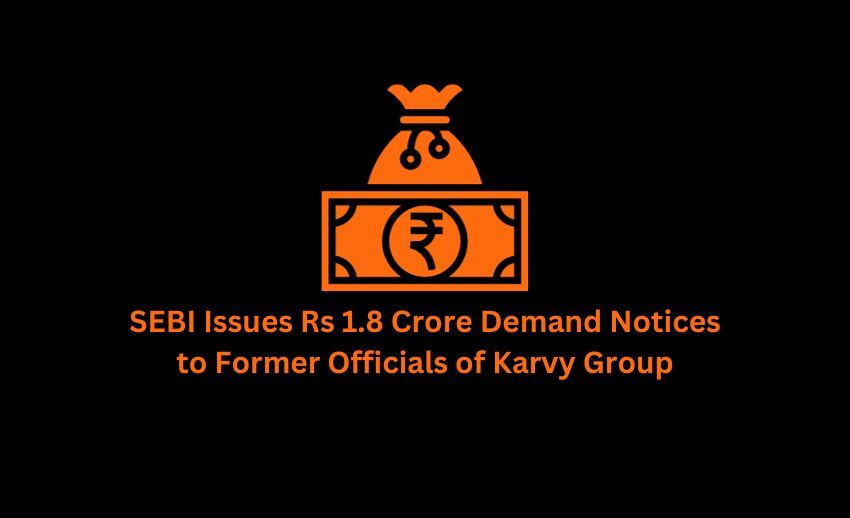
The Indian Capital market regulator SEBI has taken stern actions against the former officials of Karvy Group, sending them demand notices totaling approximately Rs 1.8 crore. The notices are a result of the misappropriation of client funds by Karvy Stock Broking Ltd (KSBL), a case that has been under the regulatory spotlight for some time.
SEBI’s message is clear: pay up within 15 days or face the consequences. The regulator has warned the former officials of potential arrest and the attachment of their assets and bank accounts if they fail to comply.
The individuals targeted by these demand notices are Krishna Hari G, the former VP (F&A) of KSBL; Srikrishna Gurazada, the ex-compliance officer of KSBL; and Srinivasa Raju, the former General Manager of back-office operations.
The action is a response to these officials’ failure to pay the fines imposed on them back in May. In three separate notices, SEBI has directed Krishna Hari G to pay Rs 1.06 crore, Raju to remit Rs 42.41 lakh, and Gurazada to pay Rs 31.81 lakh, including interest and recovery costs, all within the 15-day window.
The consequences of non-compliance are severe. SEBI reserves the right to recover the outstanding amounts by attaching and selling any movable and immovable property of these individuals. Additionally, their bank accounts could be subject to attachment, and they may even face arrest.
The underlying case involves KSBL’s unethical practices of raising substantial funds by pledging client securities and misusing the Power of Attorney (PoA) granted to them by clients. These funds were subsequently diverted to KSBL’s group entities, resulting in clear violations of various legal provisions.
KSBL sold excess securities amounting to Rs 485 crore through nine related entities, which were also their clients, until May 2019. Furthermore, KSBL transferred excess securities to six of these nine related entities.
The overall borrowing by KSBL, which was securing loans from financial institutions by pledging shares of its clients as collateral, reached Rs 2,032.67 crore by September 2019. The value of securities pledged by the stockbroker during this period was Rs 2,700 crore, indicating the extent of the financial misconduct.
SEBI had previously levied fines on these officials in May, with Krishna Hari G facing a fine of Rs 1 crore, Raju a fine of Rs 40 lakh, and Gurazada a fine of Rs 30 lakh. The regulatory authority is resolute in its commitment to ensuring accountability and justice in the case.
This development underscores Sebi’s uncompromising stance on safeguarding the integrity of financial markets and protecting investors’ interests. It serves as a strong warning to individuals engaged in financial misconduct and misappropriation of client funds, reinforcing the message that such actions will not go unpunished.
SEBI’s demand notices to the former officials of Karvy Group send a powerful message: financial misconduct will be met with strict consequences, and no one is above the law in the Indian capital market.
Regulation 49 certificates are a crucial part of SEBI’s regulatory framework, focusing on ensuring compliance with share transfer formalities. In light of the recent enforcement action, it becomes evident that adhering to these regulatory requirements is paramount to maintain trust and integrity in the financial markets.
Moreover, for companies looking to enter the market or raise capital, including Small and Medium-sized Enterprises (SMEs) planning an Initial Public Offering (IPO), understanding and adhering to SEBI’s regulations is paramount. Regulatory compliance is a cornerstone of maintaining trust and integrity in India’s financial markets. It is a collective effort to ensure a robust and secure financial environment for investors and stakeholders.
SEBI’s recent issuance of demand notices to former officials of the Karvy Group underscores the regulator’s commitment to upholding the highest standards of transparency, compliance, and ethics in India’s financial markets. This action serves as a warning to all entities operating in the securities market to adhere to SEBI’s regulations diligently.








